A River Runs Through Us – part 2
Part 1 of A River Runs Through Us
The Trees’ Perspective
Latte had her nose to the ground as she pulled Moss through a clump of burdock and headed towards the trees. Cleavers grabbed at Moss’s feet, nearly tripping her as she fought to keep up with the fast moving dog.
When she looked up from freeing her legs from the clinging plants, she saw Latte wildly wagging her tail and looking into the face of a very tall being. Well, at least Moss thought it was a face. There was very little about what stood before them that appeared human beyond their general shape and feel. Moss blinked her eyes once, and all she saw was an ancient tree. In the next blink, the well-lined face of a woman with wild, leafy hair appeared.
If Latte didn’t look so happy and at ease, Moss would have turned around and ran. Instead, she clasped the leather bag hanging around her neck, hoping the feather Nevermore had gifted her would not only make her resourceful and clever, as the crow had promised, but brave as well.
“Hello?” Moss said, while glancing around the woods for an escape route. “You seem to have completely enchanted my dog. She’s usually very leery of anyone she doesn’t know.” Yup, use the dog as a charming buffer, works most of the time, Moss thought.
“Oh, but she does know me. All the animals know me.” The response came in a voice like quaking aspen leaves, shaking in the wind. “I’m Wadee,” they said, reaching down with leafy fingers to comb through Latte’s fur. “I watch over this island and everything that lives here. Unfortunately, there’s less and less to watch over since the bridges and bike path were added. The animals have tried to find another place to live, but there’s so little land left for them.”
“I don’t suppose you know about what’s going on in the park.” said Moss.
“I know a little,” said Wadee. “Even though the channel separates us, I can still detect the smell of fear coming from the trees when they thought they were under attack. So many have gone silent. Those that remain worry they are next. As long as the trucks and machines are near, they fear for their lives,” Wadee said. “The birds bring me news. They are terrible gossips, especially the crows. I only believe half of what they say. Still, I don’t know where all this is going to end. Do you?”
“There was an article in the newspaper about the riverbank restoration process,” said Moss. “They’re supposed to stabilize the bank and replant it with native plants, but I don’t know what that means. I’m afraid the riverbank will never be the same.”
“Your fear doesn’t help us.” Wadee said, standing stiffly over Moss, her canopy blowing and shaking like a hundred dangling snakes. Moss took a step backwards, but Latte remained where she stood.
“Since you have access to the internet and a cell phone, and I do not, you must do research for us,” said Wadee. “Find out if they have similar plans for this island. There’s already been workers here clearing out the underbrush and planting seedlings. I don’t know how those little trees will survive with none of their ancestors around them. I’m doing what I can, but some elders do not welcome the transplanted trees. It’s becoming more difficult to keep the peace.”
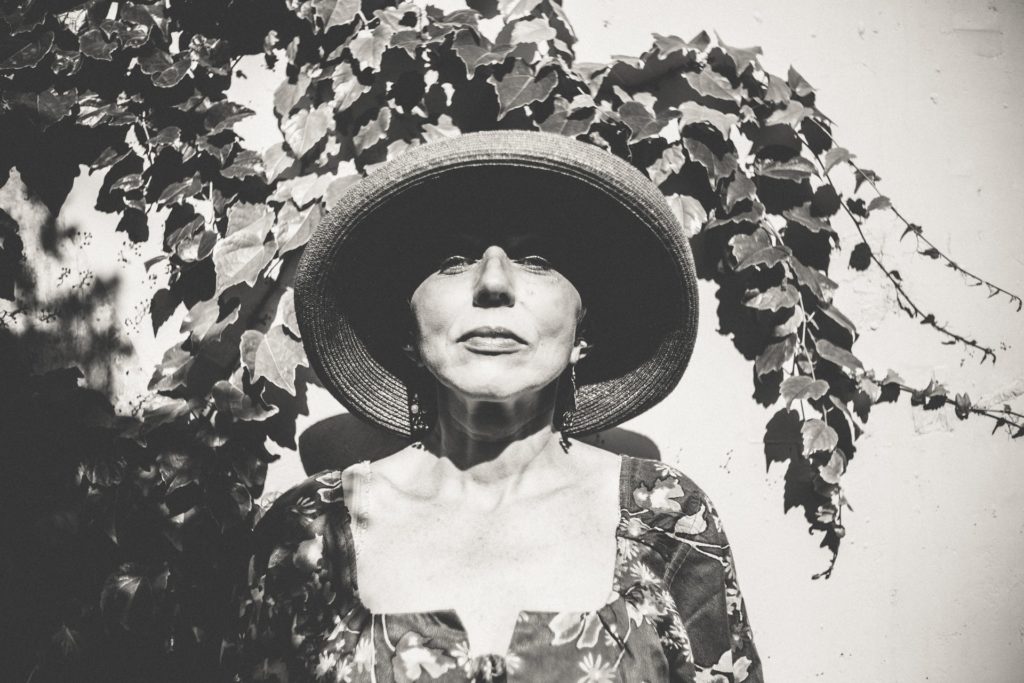
Wadee reached down again to pat Latte’s head. “I do like female dogs so much more than males—for obvious reasons,” she said. Raising a dangly rooted foot, Wadee took a step, signaling the conversation was over, then twisted her trunk around and said, “I’m curious. Why do you care so much about this place? I can feel it sometimes…. your heart breaking. It smells like a river, choked with weeds.”
Moss looked at the ground, touched her leather bag, pausing for wisdom before she answered, “Since the pandemic started, I’ve remained close to home, and come to think of this place as part of that home and you as my friends,” Moss said, gesturing towards the trees and river. “At first the isolation was hard, but after a while, I was grateful to have this time to get to know this place. But then the drought started, and since the pandemic, more people came to the park, which meant more vandalism and trash, and now the construction. It’s hard to witness. I want to turn away and stop coming. But that’s what we humans do when things get unpleasant or problems seem too big. We close our eyes. We pretend the changes are normal or we tell ourselves that’s just the way it is—there’s nothing we can do about it. My efforts to pick up garbage, garden, or put in solar energy aren’t enough. It’s the corporations and the government that need to change. But we’re the people who consume and steer what they give us. In that way, I believe how we live matters.”
“Sorry. I’m rambling, and I sound pretty stupid, don’t I?” said Moss, as she hung her head and poked at an acorn with her foot.
Wadee’s branches creaked as she laughed. “Do you always question yourself like this? No, you don’t sound stupid. Let me tell you something,” said Wadee. “The woods are very wary of people. Humans come, shoot the deer and ducks and leave their shells and trash all over the ground. They fish the river and throw their bait, plastic container and all, into the water. They have their parties and carve their names in our bark. They take and destroy and give nothing back. Perhaps, they believe the cans, bottles, and potato chip bags they leave behind are suitable offerings.”
“Still, with all their mistrust, the woods have been curious about the green witch and her little dog, Latte. They see you walking and examining the lichen and plants with your magnifying glass, pulling out books to identify this or that, jotting down notes on your pad of paper. Eventually, the trees found your visits entertaining. They started telling you when an eagle perched in their branches, or where you could find a clump of fresh chicken of the woods, and they warned you when one of their dead branches was about to fall on your head. So yes, what you do matters—it matters to them. Now go see what you can find out about this riverbank project and come back to tell me what you learn.”
And so Moss headed home to prepare for her quest to find local government knowledge, trying not to think about the dangers ahead.

Author’s Note
The biggest danger Moss faced when she began her quest was confusion, which is to be expected. Government = confusing. But she made useful discoveries and found that the local soil and water conservation group and people on the watershed district committees are not evil. The county board, on the other hand…
On her quest, Moss unearthed a storeroom of hidden treasures deep within the labyrinth of government portals and smart-people caves. There were shelves of information on how to make your lawn bee-friendly and have a more resilient yard in our changing climate conditions. She found maps to lists of native plants for her region and yours. And at no time was she attacked by a murderous bunny. If you aren’t familiar with this Monty Python reference, I am very sad for you.
I will assist Moss in putting together this information and links to help you if you want to learn about watershed districts and soil and water conservation committees and groups and why their work is important to all of us to help you set out on your own adventures.
Until our next rendezvous, be safe and sane out there!
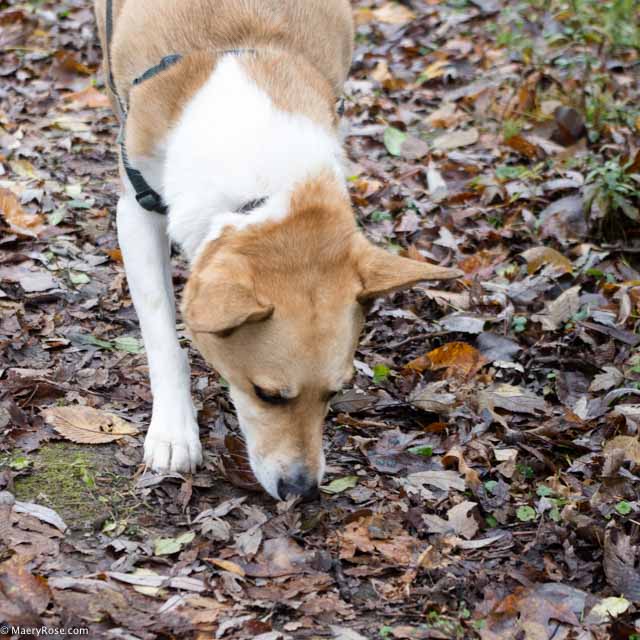
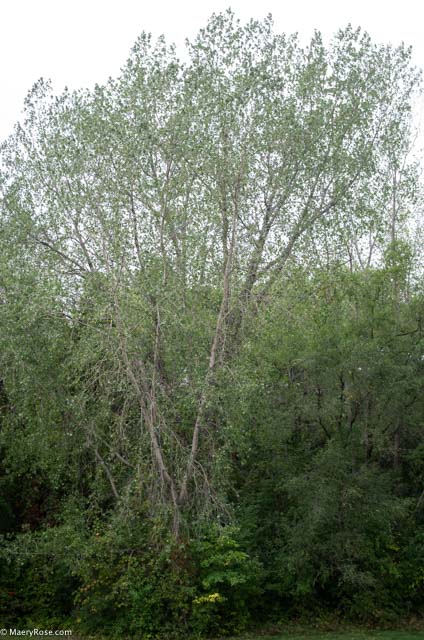
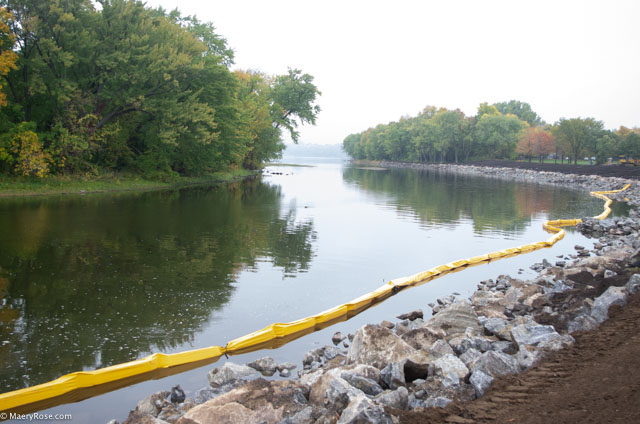
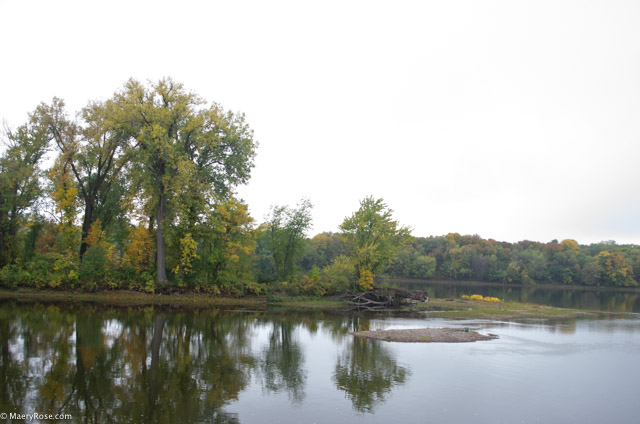
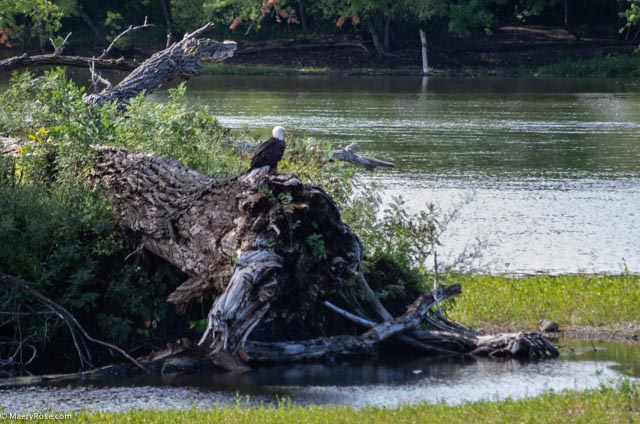
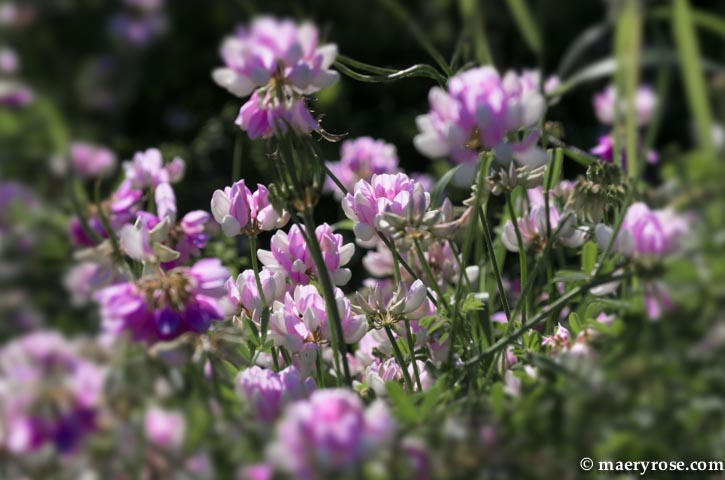
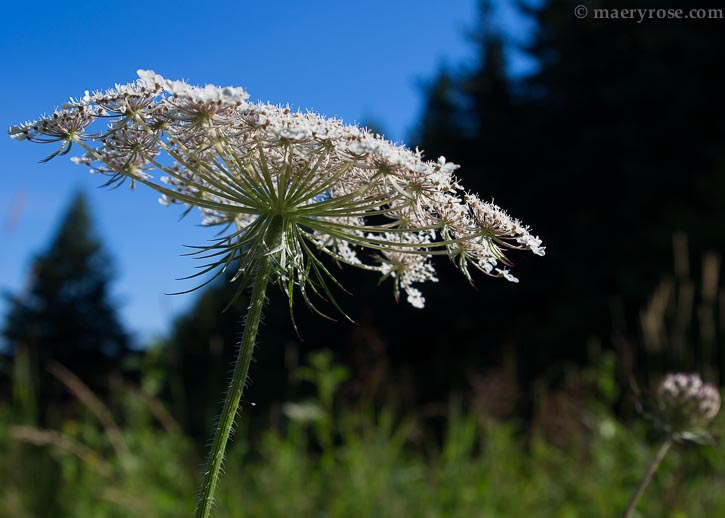
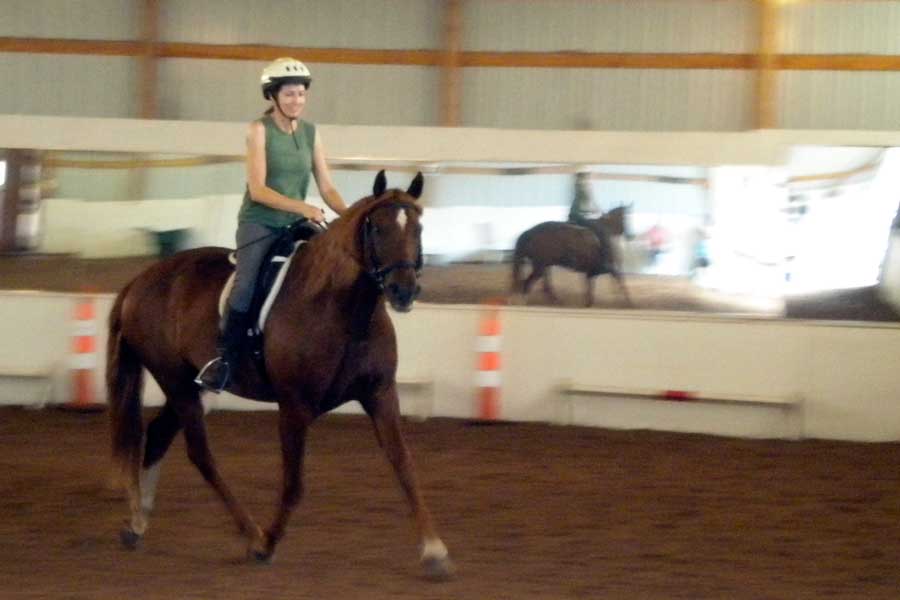
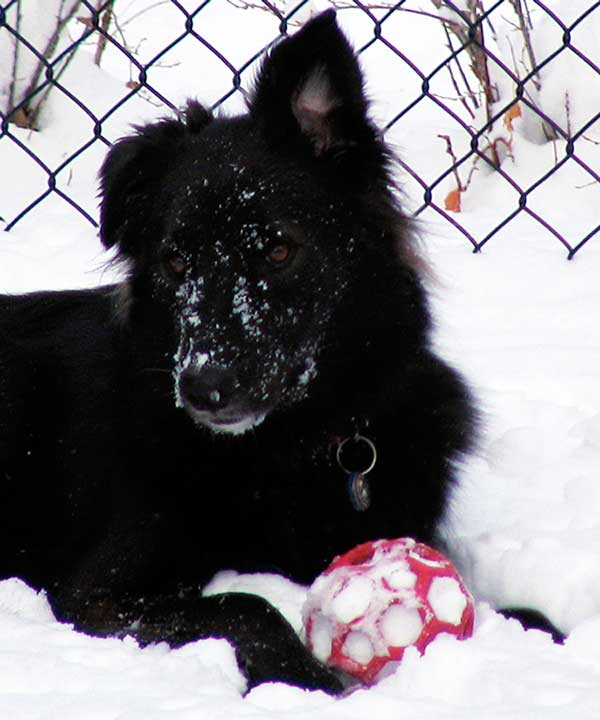
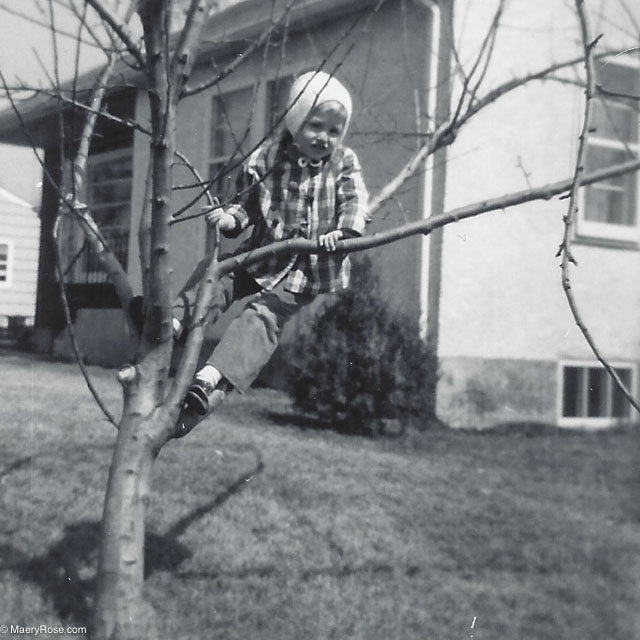
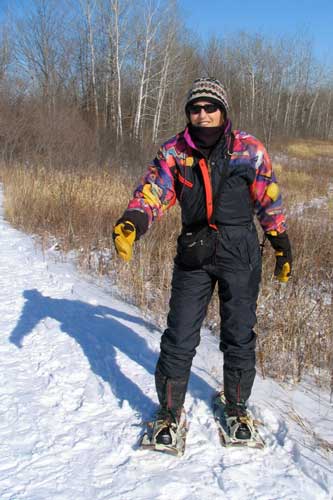
This is an awesome story. And true!
Thanks Gabrielle!